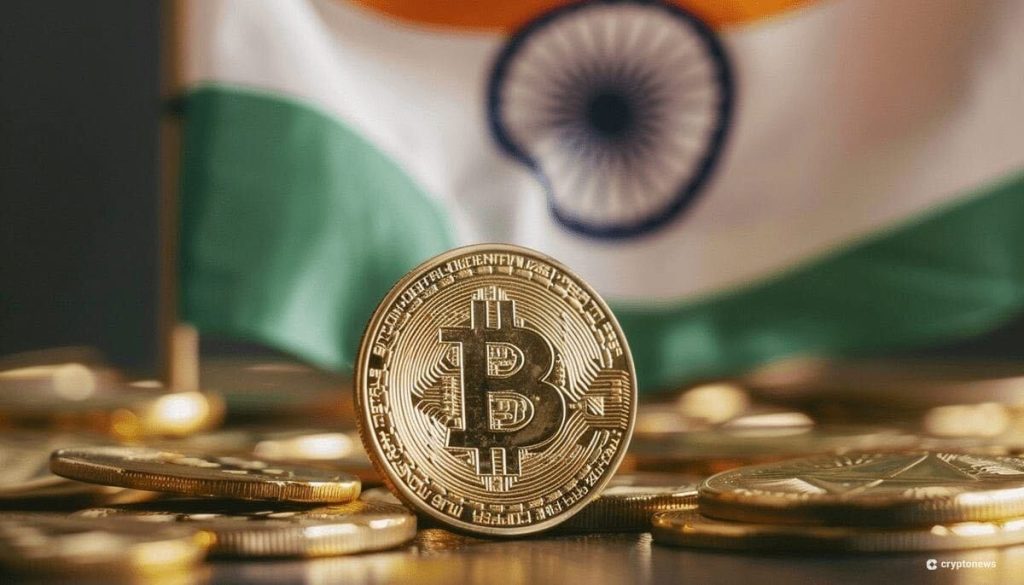Seven foreign cryptocurrency exchanges, including Kraken and Bitfinex, are being pursued by India’s Financial Intelligence Unit for $345 million in unpaid goods and services tax (GST).

The Financial Intelligence Unit (FIU) of India acted decisively to retrieve $345 million in Goods and Services Tax (GST) from seven foreign cryptocurrency exchanges that were operating in the nation, including MEXC Global, Kraken, and Bitfinex.
Following multiple warnings to these exchanges for noncompliance with Indian tax laws, this enforcement action was taken.
It was declared illegal for the participating exchanges—Kraken, Bitfinex, MEXC Global, Huobi, Gate.io, Bittrex, and Bitstamp—to provide cryptocurrency services in India.
As part of the regulatory process, these platforms will now need to demonstrate compliance with Indian financial regulations, specifically the Prevention of Money Laundering Act (PMLA).
Foreign Exchanges Face Regulatory Hurdles in India
According to reports from the Economic Times, hearings will soon determine whether these exchanges can resume operations in India.
Presenting their cases and proving they can fulfill the reporting requirements mandated by Indian law, the exchanges will need to prove they are in compliance with the PMLA.
🚨Financial Intelligence Unit India (FIU IND) issues compliance Show Cause Notices to nine offshore CEX
— CryptoTelugu (@CryptoTeluguO) December 28, 2023
❌Binance
❌Kucoin
❌Gate
❌Huobi
❌Kraken
❌Bittrex
❌Bitstamp
❌MEXC
❌Bitfinex
✅Okx is not in list, looks like they registered with FIU
💙Like
🔁RT pic.twitter.com/BhWp0CIgQP
Notwithstanding, merely adhering to these regulations cannot ensure their reappearance in the Indian cryptocurrency market. Additionally, the exchanges are required to pay fines, the exact amounts of which will be decided by their submissions made during the hearings.
The FIU is attempting to collect about ₹2,900 crores, or $345 million, in unpaid GST liabilities.
Due to the exchanges’ failure to pay GST on transaction fees they collected from Indian customers prior to being prohibited from operating in the nation, the Indian government has concentrated on recovering these taxes.
Earlier this year, the FIU asked Binance to pay $86 million in GST and a $2.25 million fine to resume its services in India.
The same GST regulations that apply to Indian businesses also apply to these foreign entities. This implies that, like domestic exchanges, they have to register under India’s GST framework and pay taxes on services rendered to Indian clients.
India’s Strong Crypto Adoption and Future Outlook for Foreign Exchanges
Despite these regulatory obstacles, India continues to lead the world in the adoption of cryptocurrencies.
Our 2024 Global Crypto Adoption Index is here! The top 10 countries spanned 5 continents, but Central & Southern Asia and Oceania (CSAO) dominated the list. Read on to see the top 20 countries and learn about global adoption trends: https://t.co/F2nqkELtd2 pic.twitter.com/bbuG1lQ8vB
— Chainalysis (@chainalysis) September 11, 2024
Even with a 30% crypto capital gains tax and a 1% tax deducted at source (TDS), India leads the world among 154 countries in the Chainalysis 2024 Global Crypto Adoption Index for cryptocurrency usage.
Despite these obstacles, the cryptocurrency ecosystem in India has persisted thanks to peer-to-peer trading, decentralized finance (DeFi) platforms, and activity on centralized exchanges.
However, some Indian investors have turned to foreign exchanges where tax laws are frequently less onerous due to the introduction of strict tax measures in recent years.
In response, the GST authorities in India are thinking about notifying other foreign exchanges in order to guarantee industry-wide compliance.
Earlier in September, reports suggested that the FIU reviewed registration requests from four additional foreign crypto exchanges, with two expected to receive approval to operate in India by the end of the 2025 financial year.















Leave a Reply